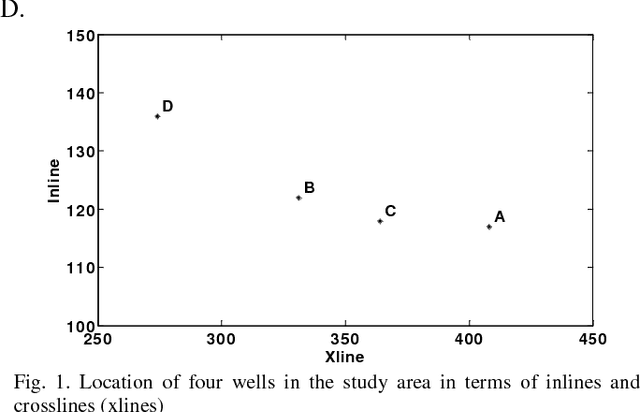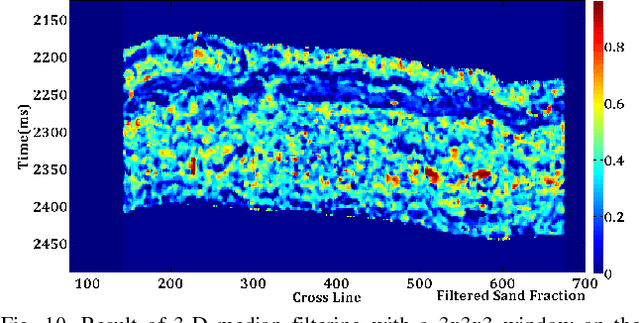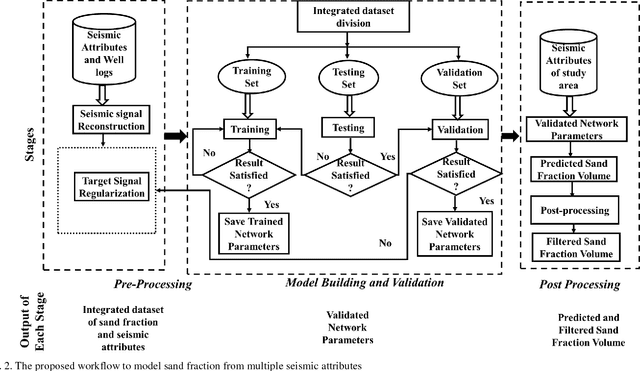A Novel Pre-processing Scheme to Improve the Prediction of Sand Fraction from Seismic Attributes using Neural Networks
Paper and Code
Sep 23, 2015



This paper presents a novel pre-processing scheme to improve the prediction of sand fraction from multiple seismic attributes such as seismic impedance, amplitude and frequency using machine learning and information filtering. The available well logs along with the 3-D seismic data have been used to benchmark the proposed pre-processing stage using a methodology which primarily consists of three steps: pre-processing, training and post-processing. An Artificial Neural Network (ANN) with conjugate-gradient learning algorithm has been used to model the sand fraction. The available sand fraction data from the high resolution well logs has far more information content than the low resolution seismic attributes. Therefore, regularization schemes based on Fourier Transform (FT), Wavelet Decomposition (WD) and Empirical Mode Decomposition (EMD) have been proposed to shape the high resolution sand fraction data for effective machine learning. The input data sets have been segregated into training, testing and validation sets. The test results are primarily used to check different network structures and activation function performances. Once the network passes the testing phase with an acceptable performance in terms of the selected evaluators, the validation phase follows. In the validation stage, the prediction model is tested against unseen data. The network yielding satisfactory performance in the validation stage is used to predict lithological properties from seismic attributes throughout a given volume. Finally, a post-processing scheme using 3-D spatial filtering is implemented for smoothing the sand fraction in the volume. Prediction of lithological properties using this framework is helpful for Reservoir Characterization.
 Add to Chrome
Add to Chrome Add to Firefox
Add to Firefox Add to Edge
Add to Edge